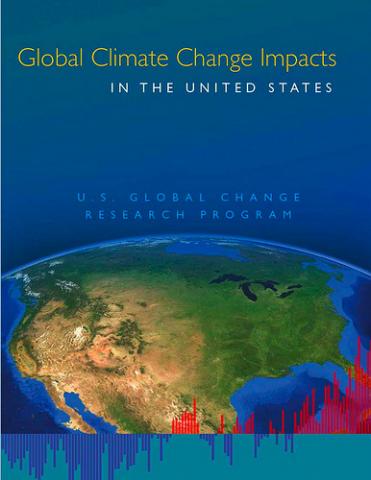If you’re a boxer, and your opponent is telegraphing his punches, that’s a good thing. It gives you an advantage.
If you’re playing poker, and another player is giving a “tell,” the same story goes. It’s to your advantage.
Opponents of climate change action are doing precisely that right now—telegraphing where they’re going to attack. Here’s Norman Rogers of the Heartland Institute, already attacking a scientific report—the National Climate Assessment, which weighs climate risks to different regions of the U.S.—that won’t be out in its next iteration until 2013. Rogers attended an early advisory committee meeting, and has already started up the narrative that will be used against the report:
There did not appear to be any member of the committee even mildly skeptical of the global warming catastrophe story. This was surely not an accident. I was told that every member of the committee had to be approved by the White House, presumably by John Holdren.
As I noted in an earlier post, Bush administration climate science whistleblower Rick Piltz knew this would happen. As Piltz put it:
This report will be attacked. There is no way to bullet-proof it against that war on science – that’s a myth. They’ll look for procedural missteps, they’ll look for anything, they’ll invent something if they need to.
In that earlier post, I commended Piltz for his foresight. Now—and again, this report is not due out until 2013—it has already been validated.
So what do you do now? Just go through the whole National Climate Assessment process—all the advisory committee meetings, model runs, and so on—and hope that critics will forget about you?
No: You start now working on a counter-narrative to defend the assessment. What does that narrative sound like?
That can be debated, but to me, this is really about homeland security, broadly understood. This is about protecting our people from drought, from wildfires, from flooding—from all of the weather conditions that can be worsened by changing the climate conditions in the background.
What role could be more important for government than protecting the livelihood of its citizens, and using the best available science to do so?
I’m not saying this is the best defense. All I’m saying is this: If you’re working on a report with a two year time horizon, and you know that report is going to be attacked, then you should also be working on a strong explanation of why your report is important and valid. I sincerely hope that is happening.
Subscribe to our newsletter
Stay up to date with DeSmog news and alerts






